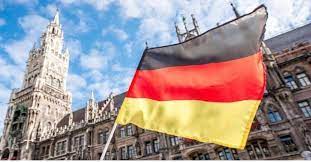Germany is actively looking for highly skilled migrant workers to address labor shortages and support its economy.
With an aging workforce posing demographic challenges, the country aims to attract global talent to fill critical job vacancies.
A recent report by the Organisation for Economic Co-operation and Development (OECD) highlights a growing interest among skilled professionals in relocating to Germany. The study, which tracked the career intentions of 30,000 individuals since August 2022, found that enthusiasm for migration to Germany has increased over the past two years.
This heightened interest presents an opportunity for Germany to reinforce its workforce and sustain economic growth. Below are some of the key industries and professions currently in high demand.
1. IT & Software Development
As Germany accelerates its digital transformation, IT professionals are in high demand. Companies are particularly seeking software developers, data analysts, and cybersecurity experts.
High-Demand IT Roles:
• Software Developer
• IT Security Specialist
• Data Scientist
• Cloud Engineer
• AI & Machine Learning Engineer
Key Skills Required:
• Programming languages (Python, Java, JavaScript, C++)
• Cloud computing (AWS, Azure)
• Cybersecurity expertise
• AI and data analytics
For those looking to develop these skills, online platforms such as Coursera, Udemy, and Code Academy offer training programs ranging from beginner to advanced levels.
2. Engineering & Manufacturing
Germany, home to industry giants like Siemens, Bosch, and Volkswagen, continues to seek skilled professionals in engineering and manufacturing to advance its technology sector.
In-Demand Engineering Roles:
• Mechanical Engineer
• Electrical Engineer
• Automotive Engineer
• Civil Engineer
Key Skills Required:
• CAD software (AutoCAD, SolidWorks)
• Robotics and automation
• Renewable energy solutions
• Industry 4.0 knowledge
Top German universities, including RWTH Aachen and TU Munich, provide engineering courses that can help professionals enhance their expertise.
3. Healthcare & Nursing
With an aging population driving demand for medical professionals, Germany is actively recruiting healthcare workers, particularly in nursing and elderly care.
Most Needed Healthcare Jobs:
• Registered Nurse
• Physiotherapist
• Medical Technician
• Elderly Care Specialist
Key Skills Required:
• Patient care and emergency response
• German language proficiency (minimum B1 level)
• Medical equipment handling
While many healthcare professions require formal training, Germany offers low-cost or tuition-free nursing and medical programs at universities like the University of Heidelberg.
4. Skilled Trades
Germany’s labor shortages extend beyond tech and healthcare, with growing demand for technical workers to support infrastructure and manufacturing processes.
High-Demand Trade Jobs:
• Electrician
• Plumber
• HVAC Technician
• Mechatronics Technician
Most of these roles do not require a university degree but may require vocational training or apprenticeships (Ausbildung) to meet industry standards.
How to Secure a Job in Germany
1. Learn German: While some tech jobs do not require fluency, reaching at least a B1-level improves job prospects. The Goethe-Institut offers language programs for those looking to improve their skills.
2. Apply for an EU Blue Card: This work and residence permit simplifies migration for highly skilled professionals. The card is valid for four years, with the option for permanent residency upon continued employment.
3. Get Qualifications Recognized: Certain regulated professions, such as healthcare and engineering, require official validation of foreign qualifications through Germany’s Anerkennung process.
4. Use Job Portals: Websites like Make It In Germany, StepStone, and LinkedIn provide listings for foreign workers seeking employment in Germany.
As Germany continues to prioritize skilled migration, professionals with expertise in these sectors have a strong chance of securing rewarding careers in the country.



